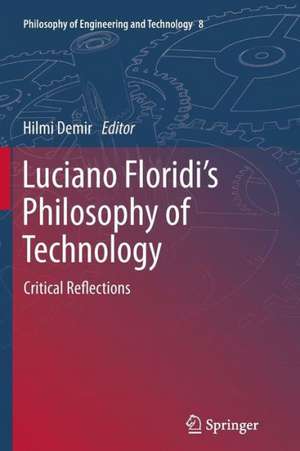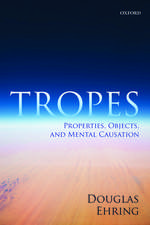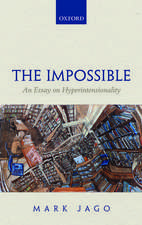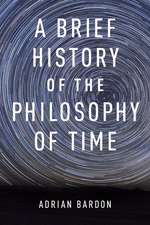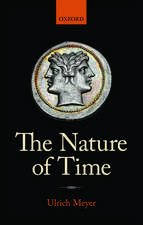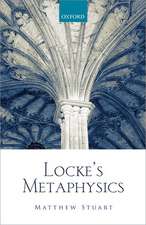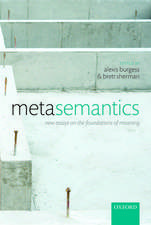Luciano Floridi’s Philosophy of Technology: Critical Reflections: Philosophy of Engineering and Technology, cartea 8
Editat de Hilmi Demiren Limba Engleză Paperback – 18 iul 2014
| Toate formatele și edițiile | Preț | Express |
|---|---|---|
| Paperback (1) | 640.24 lei 6-8 săpt. | |
| SPRINGER NETHERLANDS – 18 iul 2014 | 640.24 lei 6-8 săpt. | |
| Hardback (1) | 646.62 lei 6-8 săpt. | |
| SPRINGER NETHERLANDS – 15 iun 2012 | 646.62 lei 6-8 săpt. |
Din seria Philosophy of Engineering and Technology
- 9%
 Preț: 627.13 lei
Preț: 627.13 lei -
 Preț: 378.64 lei
Preț: 378.64 lei - 15%
 Preț: 662.95 lei
Preț: 662.95 lei -
 Preț: 280.88 lei
Preț: 280.88 lei - 20%
 Preț: 551.32 lei
Preț: 551.32 lei - 15%
 Preț: 646.75 lei
Preț: 646.75 lei - 24%
 Preț: 806.76 lei
Preț: 806.76 lei - 18%
 Preț: 1110.86 lei
Preț: 1110.86 lei -
 Preț: 392.97 lei
Preț: 392.97 lei - 18%
 Preț: 958.07 lei
Preț: 958.07 lei - 15%
 Preț: 645.28 lei
Preț: 645.28 lei - 15%
 Preț: 644.63 lei
Preț: 644.63 lei -
 Preț: 394.12 lei
Preț: 394.12 lei -
 Preț: 393.52 lei
Preț: 393.52 lei - 15%
 Preț: 638.90 lei
Preț: 638.90 lei - 15%
 Preț: 660.04 lei
Preț: 660.04 lei - 15%
 Preț: 654.43 lei
Preț: 654.43 lei - 15%
 Preț: 646.43 lei
Preț: 646.43 lei - 18%
 Preț: 788.90 lei
Preț: 788.90 lei - 15%
 Preț: 646.75 lei
Preț: 646.75 lei -
 Preț: 370.49 lei
Preț: 370.49 lei -
 Preț: 387.78 lei
Preț: 387.78 lei - 18%
 Preț: 735.07 lei
Preț: 735.07 lei - 18%
 Preț: 956.18 lei
Preț: 956.18 lei - 15%
 Preț: 637.59 lei
Preț: 637.59 lei - 18%
 Preț: 1009.40 lei
Preț: 1009.40 lei - 18%
 Preț: 787.91 lei
Preț: 787.91 lei - 15%
 Preț: 638.89 lei
Preț: 638.89 lei - 20%
 Preț: 566.76 lei
Preț: 566.76 lei - 18%
 Preț: 725.43 lei
Preț: 725.43 lei
Preț: 640.24 lei
Preț vechi: 753.22 lei
-15% Nou
Puncte Express: 960
Preț estimativ în valută:
122.51€ • 133.61$ • 103.30£
122.51€ • 133.61$ • 103.30£
Carte tipărită la comandă
Livrare economică 24 aprilie-08 mai
Preluare comenzi: 021 569.72.76
Specificații
ISBN-13: 9789400791978
ISBN-10: 9400791976
Pagini: 292
Ilustrații: XVIII, 274 p.
Dimensiuni: 155 x 235 x 15 mm
Greutate: 0.41 kg
Ediția:2012
Editura: SPRINGER NETHERLANDS
Colecția Springer
Seria Philosophy of Engineering and Technology
Locul publicării:Dordrecht, Netherlands
ISBN-10: 9400791976
Pagini: 292
Ilustrații: XVIII, 274 p.
Dimensiuni: 155 x 235 x 15 mm
Greutate: 0.41 kg
Ediția:2012
Editura: SPRINGER NETHERLANDS
Colecția Springer
Seria Philosophy of Engineering and Technology
Locul publicării:Dordrecht, Netherlands
Public țintă
ResearchCuprins
Part I: Information Ethics and The Method of Levels of Abstraction.- 1.Floridi’s Information Ethics as Macro-Ethics and Info-Computational Agent-Based Models;Gordana Dodig-Crnkovic.- 2.Artificial Agents, Cloud Computing, and Quantum Computing: Applying Floridi’s Method of Levels of Abstraction;M.J. Wolf, F.S. Grodzinsky and K.W. Miller.- 3.Levels of Abstraction and Morality;Richard Lucas.- 4.The Homo poieticus and the Bridge between Physis and Techne;Federica Russo.- Part II: The Information Revolution and Alternative Categorizations of Technological Advancements.- 1. In the Beginning Was the Word and Then Four Revolutions in the History of Information;Anthony F. Beavers.- 2. I Mean It! (And I Cannot Help It): Cognition and (Semantic) Information;Valeria Giardino.- Part III: Applications: Education, Internet and Information Science.- 1.What Happens to Infoteachers and Infostudents after the Information Turn?;Elena Pasquinelli.- 2. Content Net Neutrality – A Critic; Raphael Cohen-Almagor.- 3. Information Science and Philosophy of Information: Approaches and Differences; Armando Malheiro da Silva and Fernanda Ribeiro.- Part IV: Epistemic and Ontic Aspects of the Philosophy of Information.- 1. Skepticism and Information; Eric T. Kerr and Duncan Pritchard.- 1. Levels of Abstraction; Levels of Reality; Joseph E. Brenner.- 2. The Floridian Notion of the Information Object; Steve T. McKinlay.- Part V:.- 1. The Road to the Philosophy of Information; Luciano Floridi.
Textul de pe ultima copertă
Information and communication technologies of the 20th century have had a significant impact on our daily lives. They have brought new opportunities as well as new challenges for human development. The Philosopher: Luciano Floridi claims that these new technologies have led to a revolutionary shift in our understanding of humanity’s nature and its role in the universe. Florodi’s philosophical analysis of new technologies leads to a novel metaphysical framework in which our understanding of the ultimate nature of reality shifts from a materialist one to an informational one. In this world, all entities, be they natural or artificial, are analyzed as informational entities. This book provides critical reflection to this idea, in four different areas:
Information Ethics and The Method of Levels of Abstraction
The Information Revolution and Alternative Categorizations of Technological Advancements
Applications: Education, Internet and Information Science
Epistemic and Ontic Aspects of the Philosophy of Information
The Information Revolution and Alternative Categorizations of Technological Advancements
Applications: Education, Internet and Information Science
Epistemic and Ontic Aspects of the Philosophy of Information
Applications: Education, Internet and Information Science
Epistemic and Ontic Aspects of the Philosophy of Information
Epistemic and Ontic Aspects of the Philosophy of Information
Information Ethics and The Method of Levels of Abstraction
The Information Revolution and Alternative Categorizations of Technological Advancements
Applications: Education, Internet and Information Science
Epistemic and Ontic Aspects of the Philosophy of Information
The Information Revolution and Alternative Categorizations of Technological Advancements
Applications: Education, Internet and Information Science
Epistemic and Ontic Aspects of the Philosophy of Information
Applications: Education, Internet and Information Science
Epistemic and Ontic Aspects of the Philosophy of Information
Epistemic and Ontic Aspects of the Philosophy of Information
Caracteristici
Unique overview discussion of Luciano Floridi One of the most exciting philosophers today Explanatory overview about the role of Philosophy in an information driven world ?
